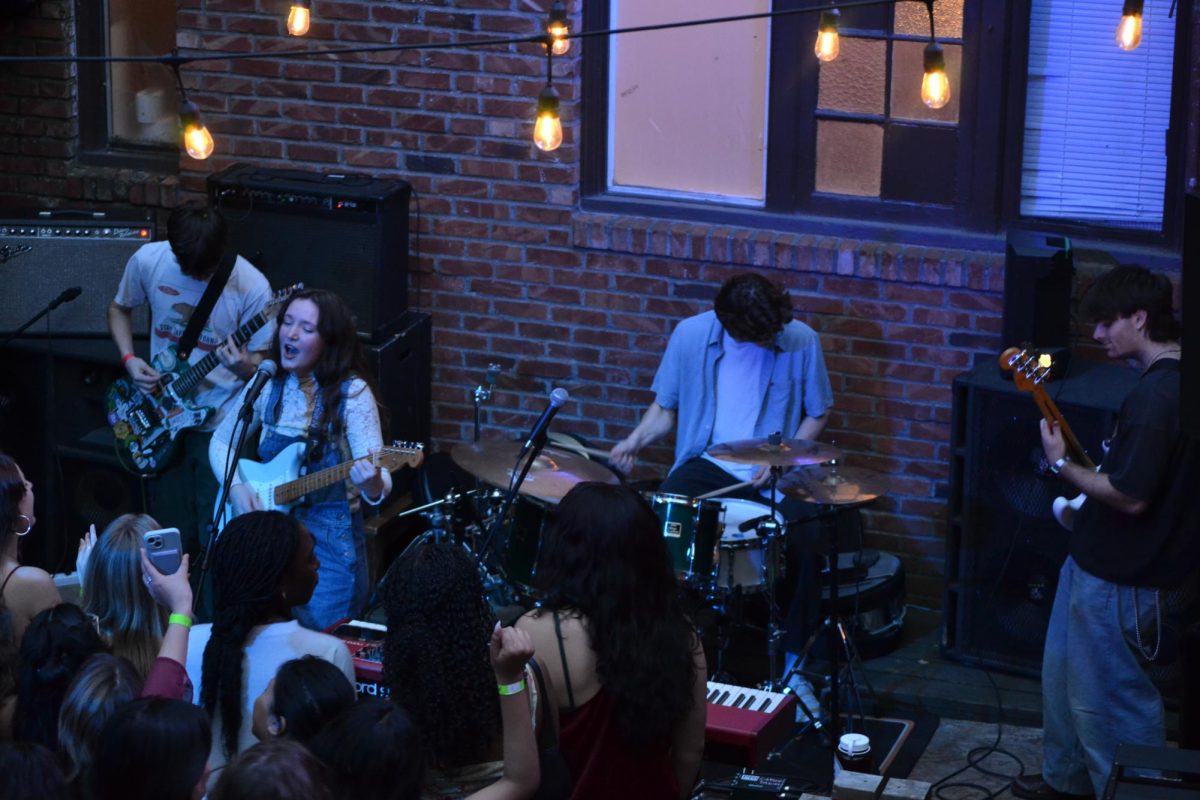In the culmination of the fall quarter before Thanksgiving hits, two artists took the Nickerson Studio’s stage — one, a Seattle Pacific University music professor, the other a renowned pianist.
Together, they illustrated the life and hardships of early 20th century British writer and feminist, Virginia Woolf, then lightened the room with satirical performances from Leonard Bernstein’s work.
“Virginia Woolf was sort of the centerpiece,”Janene Nelson, the vocalist for the night, said. “It’s a pretty intense piece of music.”
These two musicians invested their talent to create a show for the audience, all while interpreting pieces of history. From bitterness to despondency, wonder to mastery of work, no emotion was left unaccounted for in the works they chose to share with the community.
The performance, leading with the Woolf journal collection, occurred on Nov. 14. A live stream of the event was aired, and a recording is available online on the SPU website.
“I would encourage the SPU community to revisit her if they know of her and haven’t picked her up for a while,” Nelson said. “Or, if they’re not familiar with her, to check her out.”
Diane Baxter, the pianist who accompanied Nelson, said that an essential part of the show was that the music was from American contemporary composers. With just a piano accompaniment, the two were tasked with using their skills to properly convey a wide variety of content.
She also explained the weight of Woolf’s diary entries, which Baxter and Nelson captured through the performance.
“[Woolf] had lived through World War I and World War II,” Baxter said.
This was essential to the story, as Woolf suffered with the issues of the time on top of her own grief.
The first half of the show, “No Echo Comes Back,” was the night’s focal point. Baxter played while Nelson sang the journal entries detailing the inner workings of aging Woolf’s mind, following the path of her anxiety and depression as a famous writer.
“She struggled with that her whole life and ultimately took her own life,” Nelson said.
Now, according to Nelson, American society is having a discussion about mental health “in a new way” that is much different than those from the 1940s.
During Woolf’s lifetime, she confided thoughts in her writing. Pieces such as “Rome,” with the help of Nelson and Baxter, convey busy and hopeful times while still reminiscent of the struggles she faced. Others, such as one bluntly titled “Anxiety,” are less upbeat and showcase the lesser-known, internal struggles.
“[Woolf is] a very modern figure,” Nelson said.
She and Nelson had wanted to put together a performance commemorating the British writer for many years. They met 20 years ago, and have done a handful of recitals together since.
“We had done a recital three or four years ago that reminded us of this music, especially the Virginia Woolf piece,” Nelson said. “We’ve been trying to find an opportunity to do this music for a long time … so we finally found a date and a time that worked for both of us.”
The second half of the show consisted of Bernstein pieces. One explored the curious mind of a young girl named Barbara, the other a kitchen scene, where the audience was sung various recipes.
Nelson, much to the amusement of the crowd, donned a decorative apron for the final collection. Through a smile, her mezzo-soprano voice lifted the seriousness of the first half of the concert.
Though the musicians told three very different stories, Baxter and Nelson intended for them to coalesce in their shared depiction.
Through the style of the music they played, all collections had a similar feel, creating a theme of different thought processes for the night.
















































































